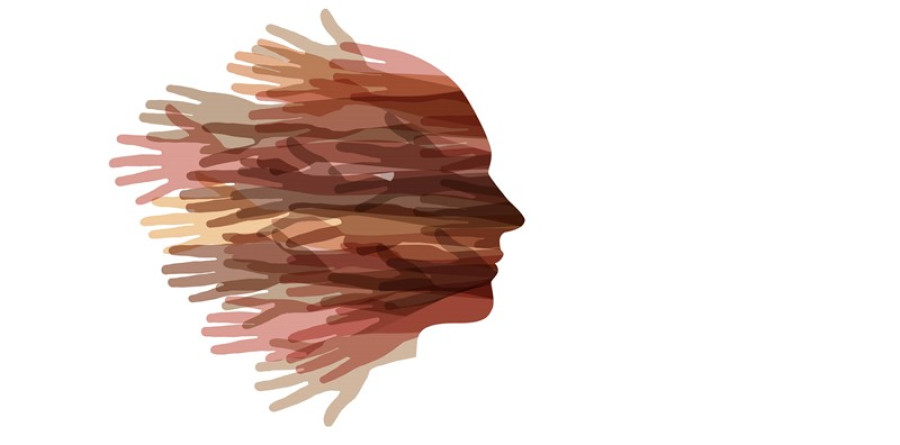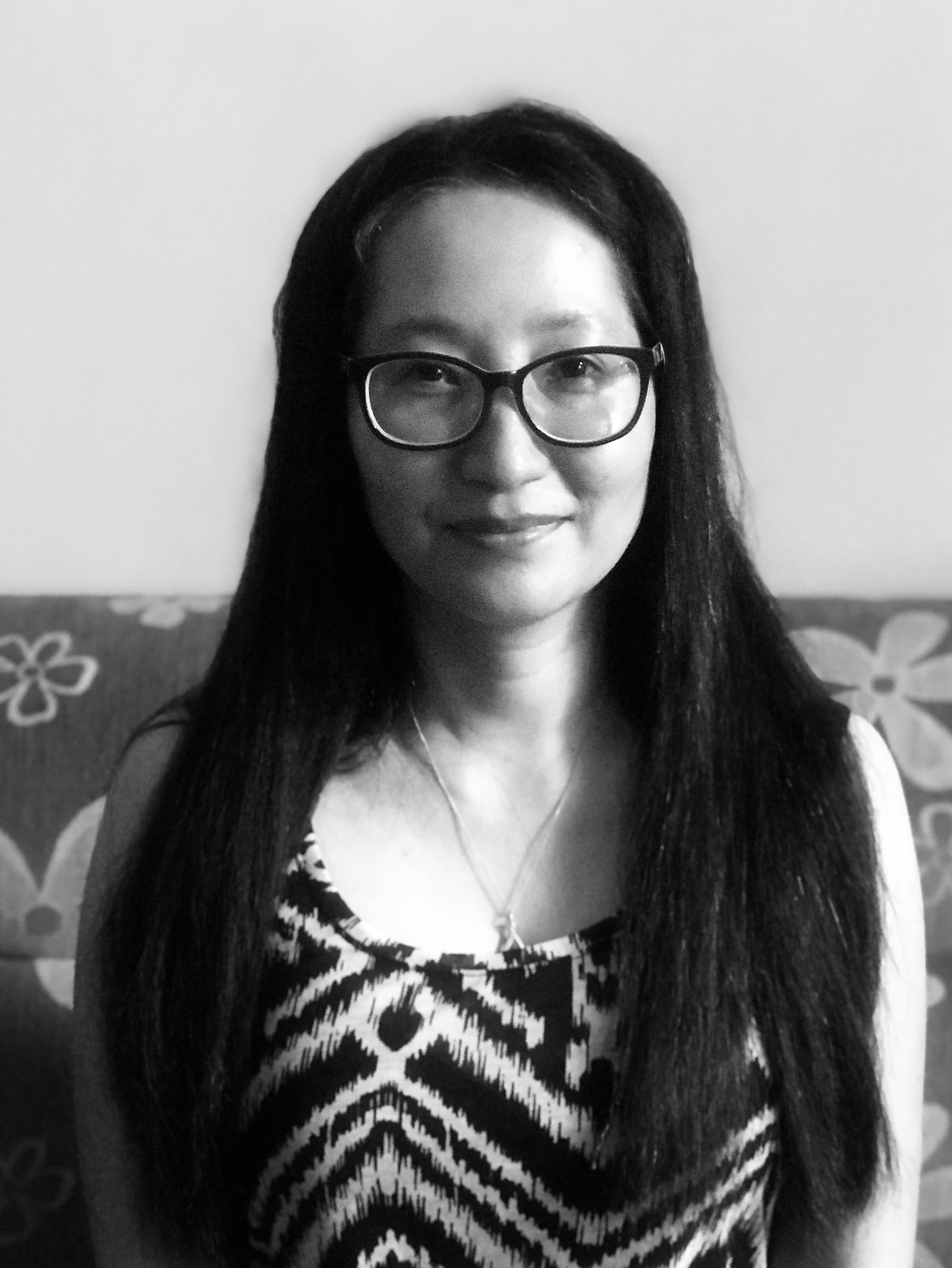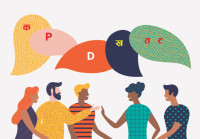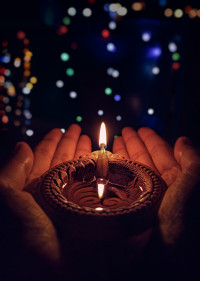As it is
Anonymous
Because the “other” is also always the “me”. The “other” is a reflection of who you are.
Prateebha Tuladhar
I’ve never known how to write this one. So, this shall toggle between first person and third person narratives. Me and the other. Because the “other” is also always the “me”. The “other” is a reflection of who you are.
…
I’m in my mid-twenties. I’m returning to a particular city in northern England, from Cambridge. I call up my aunt to let her know I’ve arrived. I step off the bus with my luggage. I’m carrying one of those small suitcases; one you would use as cabin baggage. I walk out of the bus station, with my luggage rolling at my heels. The parking lot where my aunt is supposed to meet me is around seven minutes’ walk away. I stand at the crossing for a bit to wait for vehicles to slow down. Then I press the Pedestrians’ Right button, so I can request a chance to pass. And this is when I hear voices behind me. A group of teenagers, laughing and joking among themselves, it seems to me, about something I do not catch. I’ve never been one to decipher accents, but I can tell they’re speaking in a strong northern accent, representative of their city.
When the traffic pauses to let us pass, I start walking across the street. The group is now pretty close behind me, also crossing the street. When we’re all on the other side, I notice something like a thud on my little suitcase. I tug at it and turn around to see if it hit a snag. And that’s when I see one of the teenagers kicking at it. I don’t know what to make of it at first. I think it must be a mistake, or mischief? A group of young people, after all.
Then I try to drag it slightly faster and it jerks sideways and attempts to topple. Another kick. “Paki! Get out of here!” And then more voices saying, “Paki! Get out!” followed by a sting of slurs. I’m almost running now towards the parking lot, when an orange traffic cone comes flying at me. It’s a near miss. The cone is much bigger than the ones I’ve seen in Nepal. Only about a foot shorter than my height, and much heavier. I’m terrified and so I start running, until my aunt comes into sight. She’s locking her car and my running catches her unawares, but she immediately yells.
“Hey!” She first shouts at them. Then she yells, “Help!”
Then it’s the turn of the five teenagers to run. They make a dash for the Sainsbury’s store and disappear into it.
I’m panting. My aunt’s hair is flying in the cold wind. Her face is arrested in something between anger and fear. Mine reads only terror. She helps me dump my baggage in the trunk and then we get in the car and she starts driving. She’s seething and won’t talk for a while. She asks me what happened and I explain. She tells me I should yell for help any time something like that happens. We’re not welcome here, she explains. She says “Paki” is a term used sometimes for all brown immigrants.
I want to ask my aunt if she’s had similar experiences, but I remain quiet.
…
I’m in the newsroom. My colleagues are engaged in a conversation about scheduling duty. Then one of my male colleagues makes a suggestion. To justify it, he says that since my colleague comes from the family of Brahmins, she is expected to demonstrate better conduct and must go home earlier.
I feel like telling him my Newa father gets pretty mad about me staying out late, too, but I let it go because I’m busy following the five boxes a week for late night shifts, my name is being typed into.
…
This is during a conversation about the house being rebuilt after the earthquakes. My colleague says that most beneficiaries who were handed out cash for rebuilding their homes have spent their money drinking, because “that’s what Tamangs do. Communities, in which women also drink always have these problems. They spend all their money drinking.” I remind him that I also come from a community where women drink, and I can tell him that consumption of alcohol by women has nothing to do with whether or not people are able to build their homes; building homes is about access to resources.
“I didn’t mean Newars. I meant the Matwalis,” he tries to break into a smile.
“I am a Matwali,” I say. I am everything he wants to use that term as a definition of a people.
…
The boy says to the girl, “I would never marry a girl with a small nose. I’d marry someone with a perfect nose, even if she has a sharp tongue.”
Even. If.
Other.
…
The boy extends his hand and offers her his cigarette. She says, “No, thank you. I don’t”.
The boy lets out a short laugh. “You don’t smoke, you don’t drink. Such a shame! I thought women from your jaat were cool.”
…
It’s Mohni. Dashain.
Mother: You need to go to your Great uncle house for your Mohni sinhaa.
Child: Okay, I’ll go with cousin.
Mother: No, cousin can’t go. They won’t let her enter the shrine there.
Child: Why?
Mother: Because cousin’s mother married someone from a different caste. They cannot enter our sacred spaces.
Child: What does that mean? What do you mean by caste?
Mother: It means we belong to different families. Never mind. I’ll explain later. Go on your own. Without cousin.
Child: Cousin is my sister. It’s no fun without her. Not going.
…
“Where do you come from?” the cab driver asks.
“Why don’t you tell me? Where do you think I come from?”
“Singapore?”
“No.”
“Hong Kong?”
“No.”
“Japan?”
“No,” she laughs a little.
“Korea?”
“No.”
“It should be China.”
“Close… but I’m not from China.”
“Okay, but are you from a rice-eating country?”
“Sorry?”
“A country that wakes up to eat rice for breakfast”.
“I guess you could say that,” the girl smiles, watching the trees fly past her.
“That’s good. You can trust Asians who eat rice. You can’t really trust the others—the ones who don’t.”
And she looks away from the trees she’s been staring at.
…
Girl: Namaste, Auntie!
Auntie: You haven’t visited us for so long.
Girl: I know, Auntie. I kept thinking I would, but just got busy.
Auntie: Are you ashamed of visiting us because we are Madheshis?
Girl doesn’t know how to respond. She stares at Auntie for a while and then leans in and gives her a hug, clinging to her.
…
Another conversation in the newsroom:
The boy named after the beautiful neon object in the sky, picks a cookie and starts to munch.
“How’s the day going for you?” he asks.
“Need to file this soon. No time for lunch today, therefore…,” she says, pointing at the cookies.
“I got the story,” the boy whose name means the reflection of the beautiful bright object in the sky, rushes in shouting. “I’m starving,” he says and picks a cookie from her desk, smiles, and makes his way to his.
She picks a cookie, stuffs it into her mouth while still tap-dancing on her keyboard.
“Want another?” she turns to the boy named after the beautiful neon object in the sky.
“No, thanks,” he says. “I can’t eat this after he touched it. My mother will make me take a sun-pani bath”.
She stops typing. Turns around to look at him. Pops another cookie into her mouth. Sips from her mug and goes back to typing. The coffee is bitter in her mouth.
…




 22.64°C Kathmandu
22.64°C Kathmandu










